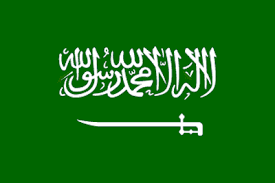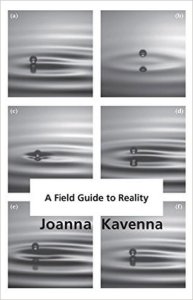Let me paint a very simple picture of recent history. In the Middle East, the West backed the wrong horse, and has paid the price ever since.

Backing this particular Arabian stallion has, however had its advantages. The House of Saud have been providing petroleum for our cars, central heating systems and aeroplanes since the 1930s.
The price for this has been our reticence – to the point of complicity – regarding the regime’s human rights abuses, a silence which, through decades of ever-increasing dependency on oil, has only grown louder.
A few more churns on this sickening cycle have been notched in recent days. First, a High Court ruling that arms sales to the Saudis – arms which are pouring over hospitals, water plants and schools in Yemen – are lawful (useful, as BAE finalises the transferral of the last of 27 cruise fighter jets to the Arabian Peninsula).
Days later, Home Sec Amber Rudd withheld the classification of a document detailing where funding for domestic terrorism was coming from. Last year, another secret report was leaked, highlighting the link between the Saudis and the instigators of the attack on the World Trade Centre in New York, the provocation for a ‘War on Terror’ which shows no sign of ending.

More still, in her revealing new book Oil and the Western Economic Crisis, Helen Thompson reveals how a drastic change in the price of ‘black gold’ precipitated the fall of the Global Economy in 2008. This completes the outline of the world’s principle power relation: one in which Western powers, drunk on the tantalising fumes of petroleum, sacrificed their liberty for one more hit from a dodgy dealer.
Now, like any addict, we have reached breaking point. Our continual financial and military aid for the Kingdom must now be explained to a Western populace with increasingly hostile views towards ‘Islamism’. This caricature of Islamic culture – conservative, sandy and intolerant of democracy – appears in part to stem from our legitimisation of the Saudis.
We must find another horse in this increasingly bloody and complex race. The question is: which?
This is a question which Mark Levine’s 2008 book Heavy Metal Islam attempts to answer.
Heavy Metal Islam. Seems like an oxymoron, right? Yet there is something inherently radical about an oxymoron. It burns through your imagination, producing a sense of something unsettlingly new. For an instant, an image pierces your retina; collapses on to your psyche, fades in to familiarity. The light becomes dark; the dead are enlivened; what was false now appears as true.

Levine’s book rebukes the kind of cultural myopia which leads Westerners like me to view Heavy Metal Islam as contradictory. Iraqi guerrilla filmmaker Oday Rasheed politely illuminates this ignorance, telling Levine ‘I know all your artists and cultural figures – Jimi Hendrix, John Coltrane, F Scott Fitzgerald. But I also know my culture – Oum Kalthoum, Farid al-Atrash, and Adonis. How many (Westerners) even want to know my culture, let alone take the time to do so?’
It isn’t simply the traditional culture of Middle Eastern society which fails to register in Western minds, however; Heavy Metal Islam is an account of Levine’s five year exploration of music genres with indelible roots in Western culture: Islamic rap, metal and rock.
Journeying across six different Islamic nations, Levine finds a musical movement of staggering diversity. Yet a common thread unites the book’s protagonists: fear of persecution from the authorities.
In Egypt, we find a scene still smarting in paranoia from the arrests of 100 metal heads in 1997 on charges of Satanism. To conservative regimes, metal’s aesthetic is provocative enough to warrant surveillance and repression, even if no explicit political message comes with it. The Egyptian chapter ends with one of the scenes leading musicians – known to the reader as ‘Marz’ – demanding his full name be printed: an act, in context, of defiant heroism.
Yet it highlights how limited the scope is for these musicians to resist authority. Readers searching for a perfect X Factor ending will find Levine’s book disarmingly inconclusive. Many musicians offer only veiled critiques of their leaders. Many have given up even trying.
Existence, however, can often be politically potent in and of itself. For Levine these scenes matter beyond their artistic output, because they symbolise an interpretation of Islam that is ‘far more radical than (that of) the supposed radicals of al-Qa’eda, Hamas, or Hezbollah, who are distinctly reactionary in their reliance on violence and conservatively grounded religious and political imaginations’.
These are the cultural terrorists, hidden in the recesses of their society, and evoking the kind of latent fear which only those in the shadows truly can. When considering who to throw our lot in with, we can often look with immediacy to the conventional corridors of power. In doing so, we fail to spot the dark horse in the outside lane.
The music scene in Palestine is perhaps the most chaotic, restricted yet fascinating that Levine explores. Rap groups like Ramallah Underground and Palestine Rapperz, unable to develop internally, rely on the support of foreign fans to survive and flourish.
What if those of us who lament Western cultural hegemony consciously attempted to undermine it? What if we gave the money we (typically) aren’t giving our local musicians to those in countries such as Egypt and Palestine? What if we began seeking political solutions not through parliaments and commissions, but through people, through art?
Heavy Metal Islam is an eye-opening book. For it to hold power, however, it should only be our introduction.
Pictures from:
http://www.worldatlas.com/webimage/flags/countrys/mideast/saudiarb.htm
http://www.telegraph.co.uk/news/0/who-is-amber-rudd-a-profile-of-britains-new-home-secretary/
https://www.amazon.com/Heavy-Metal-Islam-Resistance-Struggle/dp/B0083LJ7WK
https://insideislam.wisc.edu/tag/heavy-metal-islam/
For more, check out this article on the metal scene from this year…
http://thequietus.com/articles/22565-heavy-metal-in-the-middle-east-al-namrood-melechesh-akvan-blaakyum-nader-sadek
And Mark Levine’s companion playlist to the book, ‘Flowers in the Desert’.
Share this:





